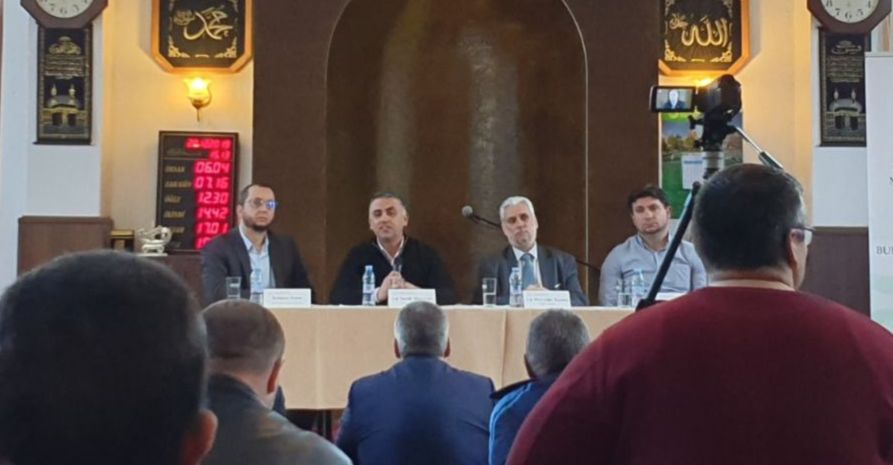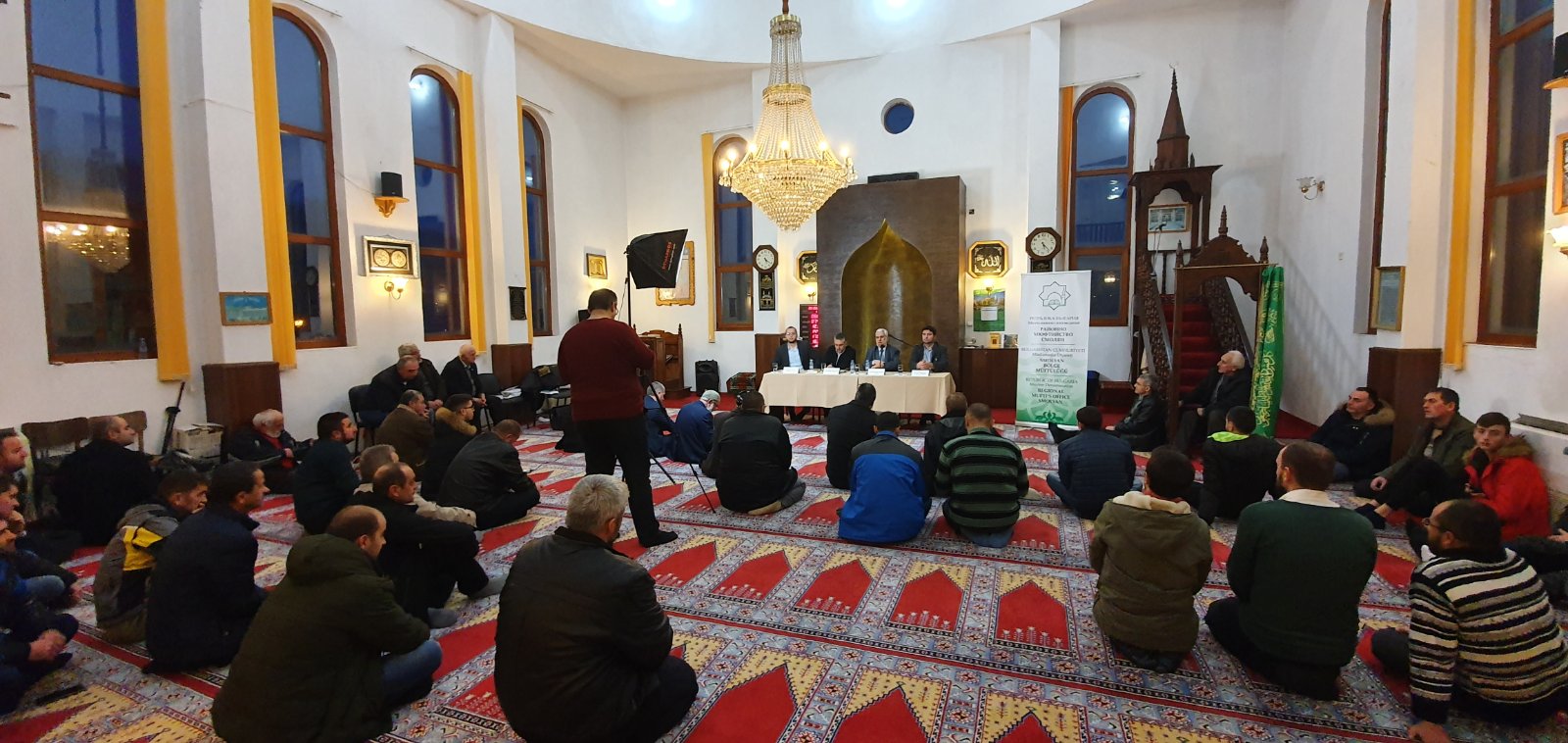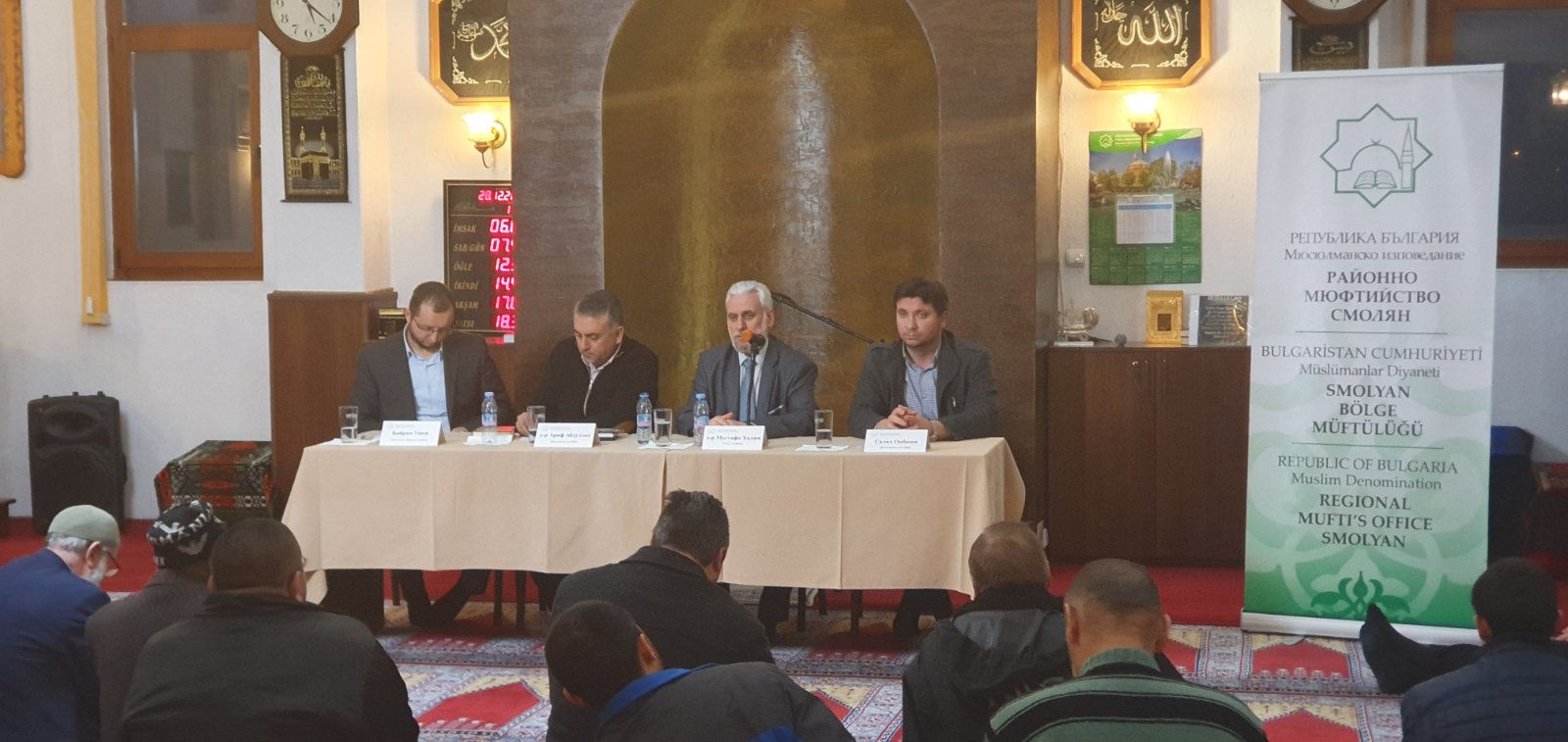News

Sources and methods of formation of the principles in Islam were discussed by scholars during a scientific workshop in Smolyan
31 December 2019Sources and methods of formation of the principles in Islam were discussed by scholars during a scientific workshop in Smolyan

The Grand Mufti Dr. Mustafa Hadzhi, Dr. Arif Abdullah and the doctoral candidate Salih Onbashi were the participants in a scientific workshop on “Sources and methods of formation of the principles in Islam”. Moderator of the event, which took place on December 28 (Saturday), 2019 in the central mosque of Smolyan, was hafiz Bayram Ushev - Deputy Regional Mufti of Zlatograd. Host of the event attended by dozens of Muslims from the entire region, was Regional Mufti’s Office – Smolyan.
The Grand Mufti and Rector of the Higher Islamic Institute (HII) Dr. Mustafa Hadzhi presented the topic “Normativity of Sunnah” in the framework of which he addressed the details of the topic in historical aspect, as well as our attitude nowadays in this regard.
“There are no disagreements among the scholars that Qur’an-i Kerim is the first source of the evidence in Sharia. And the majority of them with very few exceptions, agree on the understanding that the second source of Sharia is the Sunnah of the Prophet Muhammad (pbuh). The proof of that is the Holy Qur’an, in which it is said:
“Obey Allah, and obey His Messenger”
As the Grand Mufti said, according to the Qur’an obeying Rasulullah (pbuh) is obligatory for every Muslim. During his lecture in the scientific workshop Dr. Hadzhi recited the words of a scholar according to whom the Qur’an tells us what to do and the Sunnah tells us how to do it. “If there is no Sunnah we will not know how to perform the commandments which the Glorifies and Exalted Allah gave us” – further added the spiritual leader of the Muslims in Bulgaria.
The participation of Dr. Arif Abdullah, lecturer at the Higher Islamic Institute (HII) and Head of the Research Center at it, included presentation in the topic “Wahyn – terminological meaning and scope”. He informed the participants about the meaning of the concept of “wahyn” and presented also definitions and classifications of scholars for concepts that exist in the Qur’an.
“For a first time in XIV century Sherif al-Jurjani linked the concept of “Wahyn” with the meaning. According to the definition of Sherif al-Jurjani this is revelation of the meaning in the heart and this meaning is not restricted only to the messengers of Allah. According to him “wahyn” in this sense can include also other circle of people” – shared Dr. Abdullah. He said that according to the scholars “wahyn” should reveal knowledge or message that was not previously known to the person to whom it was revealed. He also familiarised the participants with the classifications of the scholars on the types of “wahyn” and the groups of people to whom it may refer.
The topic of Salih Onbashi, doctoral candidate in “Tafsir” and a lecturer at HII, with which he participated in the workshop in Smolyan, was “Methodologies for interpretation of the Holy Qur’an”.
“The Holy Qur’an-i Kerim undoubtedly was the most complete and proper understood during the time of the companions of the Prophet (pbuh), because they were living with him. They were living with the revelation of the Qur’an for 23 years. And in this short period the companions understood the Holy Qur’an.” – said Salih Onbashi during his lecture.
He also told about how the companions (may Allah be pleased with them) showed a great interest in the historical context of the revelation of the Holy Qur’an and did not stop to ask their questions, related to the context of the revelation of the verses. In this sense the lecturer emphasized that in order to understand truly the Holy Qur’an, we also have to use for this the methods which the companions themselves used during their time.
Author: L. Chausheva

